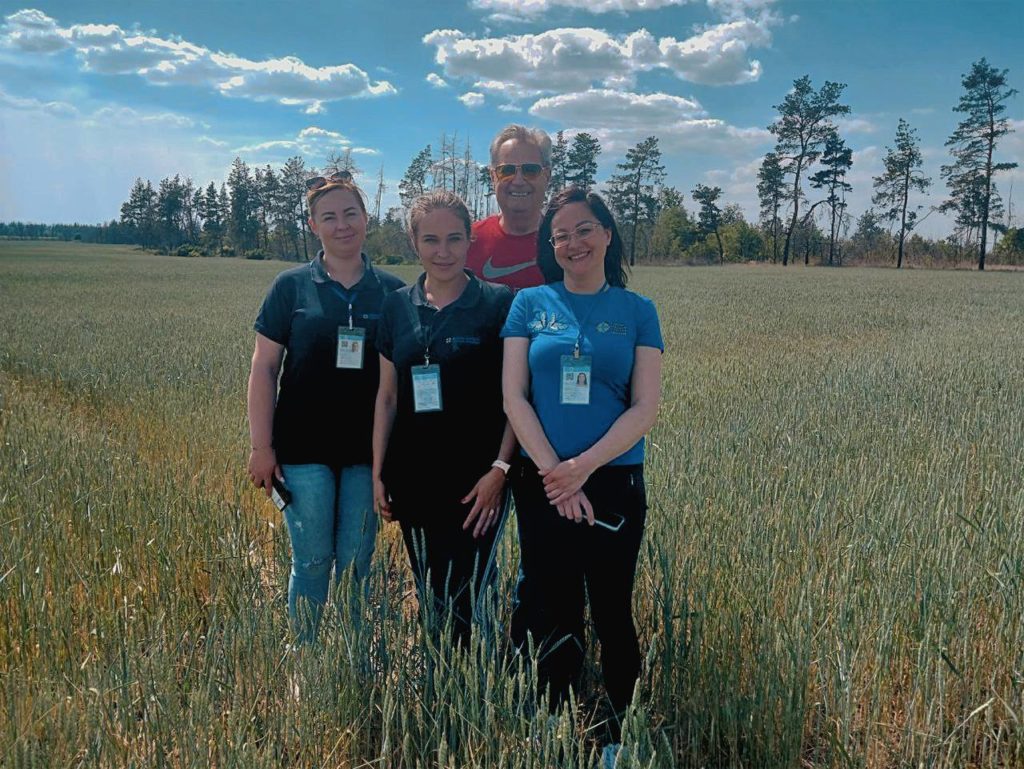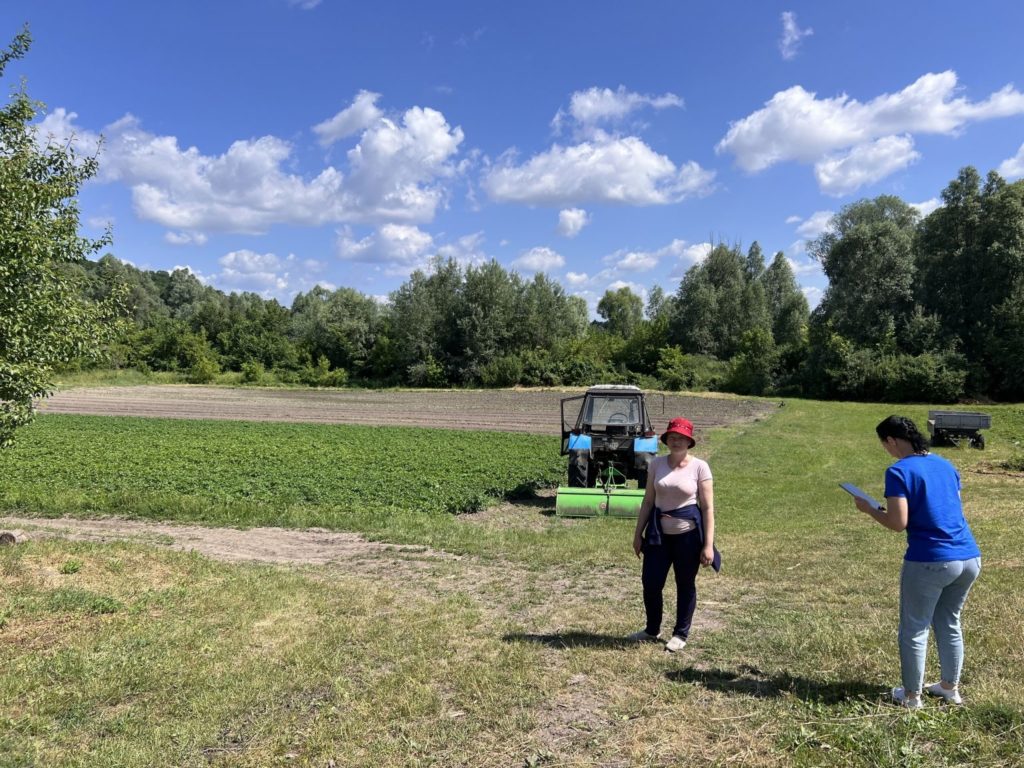Program goal (mission)
Enhance the livelihoods of IDPs and local communities affected by the war in Ukraine through targeted employment support for vulnerable individuals, vocational training, economic empowerment initiatives, and agricultural support, ensuring they can meet their basic needs and providing an exit strategy towards sustainable independence. The program aims to foster resilience, self-sufficiency, and sustainable development among affected populations, thereby promoting economic stability and enhancing community well-being.

Key areas and services (activities)
Cash for Work (CfW)
Cash for Job (CfJ)
Technical and Vocational Education and Training (TVET)
Agricultural grants Microgrants/minigrants and trainings
Livelihood grants
Coworking space and opportunities
Livelihood center services

Reporting information for the last six months (number of beneficiaries covered by services)
| # of Cash for work assistance | 1139 |
| # of Cash for job assistance | 106 |
| # of small agricultural grants | 902 |
Regions
Lviv
Ivano-Frankivsk
Poltava
Khmelnytskyi
Odesa
Kharkiv
Dnipro
Donetsk
Zaporizhzhya
Cherkasy
Kherson
Program partners
Caritas Swiss
Cordaid
CRS
Caritas Austria
Caritas Luxemburg
Trocaire
USAID
Caritas Norway (Norad)
Neighbour in Need (NiN)
Caritas internationalis
List of active projects
AGRIS
ELIS Odesa
ELIS-GAP
SARI
BHA
EA 2024

Key achievements
Common community-development projects and goals with local authorities, business and NGOs.
Establishing a streamlined registration process for beneficiaries, including through the use of the “Diia” application.
Developing methodological materials and a strategy for providing assistance within the livelihood program.
Providing and organizing counselling and training for relocated and local agricultural businesses.
Conducting monitoring visits to those who have already received assistance to assess how beneficiaries’ lives have changed after receiving the grants.
Actively participating in the cluster, implementing consolidated assistance approaches, and avoiding duplication of efforts.

Key needs and challenges
Livelihood projects span across various regions, from Poltava and Zaporizhzhia to Lviv and Kolomyia, highlighting the necessity not only for humanitarian aid but also for a shift towards more sustainable solutions – like Cash for Work and Cash for Job – in response to the crisis throughout Ukraine. This “transition” has introduced several key challenges, including:
Mobilization of the population and the issue of reserving both: program employees and beneficiaries, affecting labor relations, the volume of work performed, and the type and form of labor contracts.
Lack of documents (contracts) defining labor relations between various entities (individuals, municipal enterprises, individual entrepreneurs, etc.).
The amount allocated for salaries within CfW/CfJ is insufficient for beneficiaries; some communities are reluctant to join projects due to the small amount.
Lack of cluster standards regarding de-duplication, grant amounts, etc.
Absence of a legal position within the program.
Establishing cooperation with local businesses and local authorities.
Constant need for labor market research

